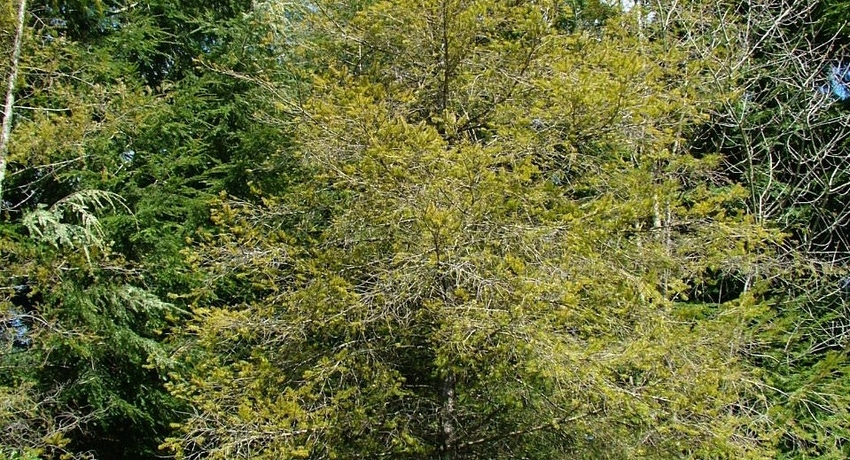
The effect on trees of this year’s early summer Pacific Northwest heat wave is the subject of a Nov. 19 event hosted by the Oregon State University College of Forestry.
The Mini-Symposium on the June 2021 Heat Dome Foliage Scorch is scheduled for 8 a.m. to noon in person in Richardson Hall and remote via Zoom. Registration is required but the event is free and open to the public.
“On the heels of two years of drought, many areas of the Northwest experienced unprecedented air temperatures in late June and early July,” said College of Forestry researcher Chris Still, the event’s lead organizer. “The ‘heat dome’ led to numerous reports of foliage scorch and leaf drop in westside forests of the Coast Range and Cascades. Western hemlock and western red cedar seemed to be affected the most, but Douglas-fir and various alders and maples were affected too. We don’t know what the consequences of foliage scorch and heat stress will be, and the mini-symposium is aimed at helping us start to figure that out.”
The event will include:
An overview on the heat dome and its climatic drivers.
Presentations on heat dome impacts and leaf physiology.
A summary of citizen science inputs to the Oregon Department of Forestry.
A summary of scorch patterns and satellite imagery.
A presentation on aerial survey results.
A discussion of possible follow-up studies.
“We’re hoping to create a unique opportunity to start probing the physiological and ecological responses in important Northwest tree species to last summer’s extreme heat wave,” Still said.
For more information about the presentations visit https://beav.es/UB2.
Source: Oregon State University, which is solely responsible for the information provided and is wholly owned by the source. Informa Business Media and all its subsidiaries are not responsible for any of the content contained in this information asset.
About the Author(s)
You May Also Like




